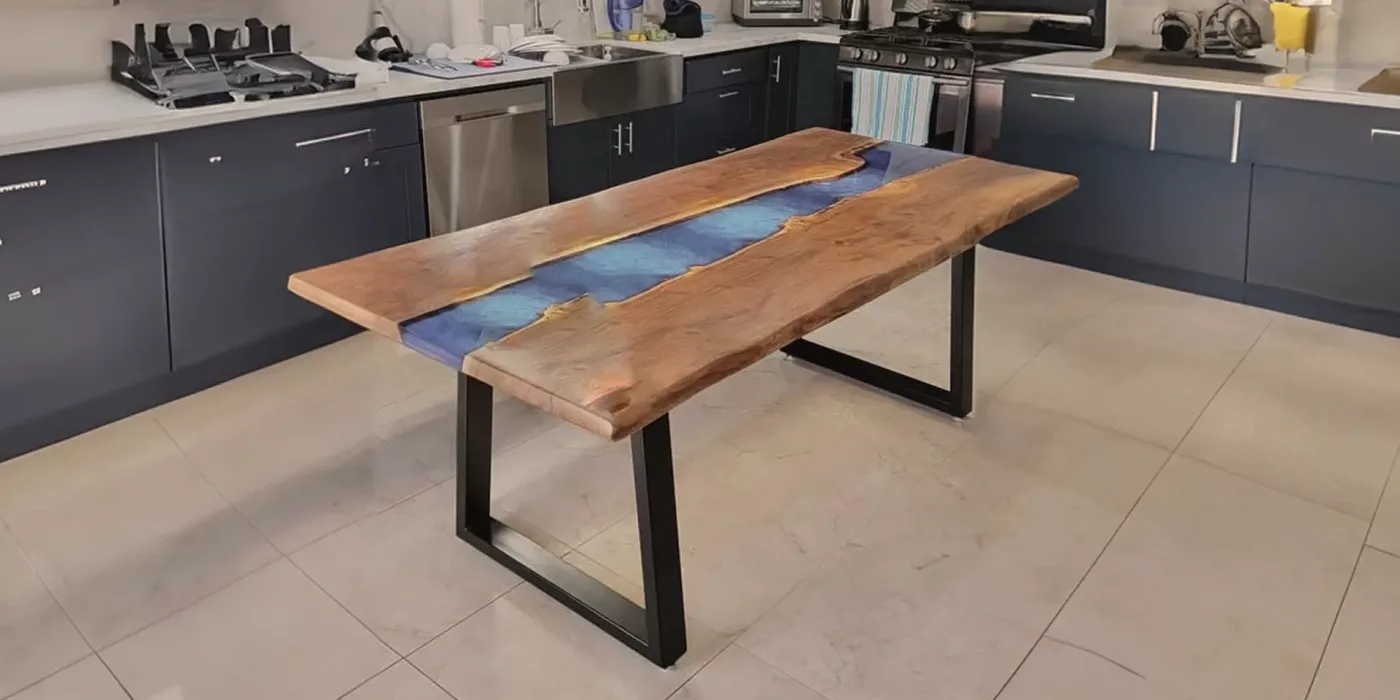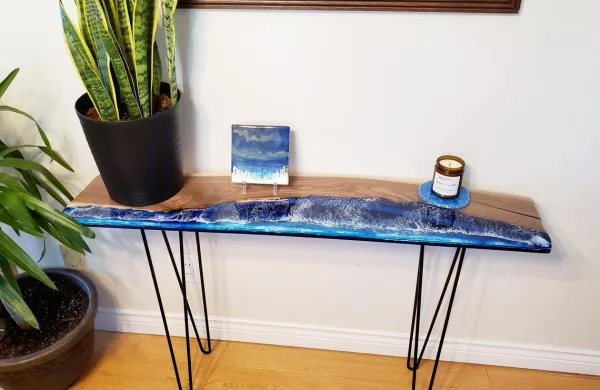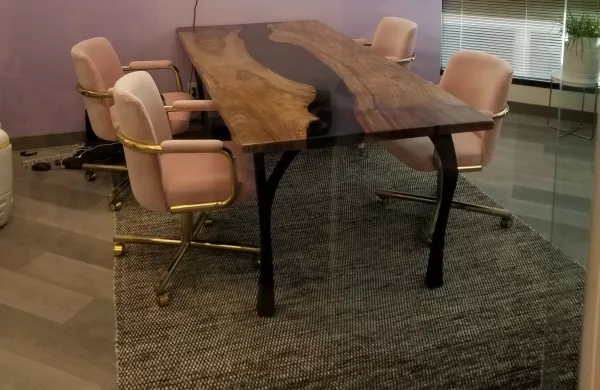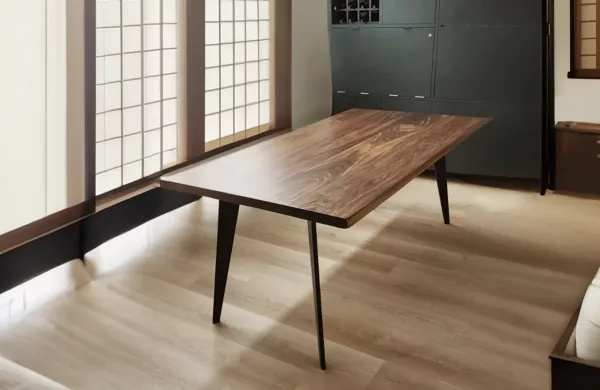
An epoxy office table is a striking piece of furniture that combines functionality with artistic beauty, making it a standout addition to any office space. At its core, this type of table typically involves a wooden base that serves as a canvas for the epoxy resin. The wood can vary from classic options like oak or maple to more exotic choices, ensuring that each table has its unique character even before the epoxy is applied.
The magic begins when epoxy resin is poured over the wood. This resin can be clear, to preserve and highlight the natural beauty of the wood beneath, or tinted with vibrant colors and metallic pigments to create a more dynamic effect. The epoxy might also encapsulate objects such as stones, shells, leaves, or even office-related memorabilia, adding a layer of personalization and visual interest.
Once cured, the epoxy resin forms a glossy, glass-like surface that is not only stunning to look at but also incredibly durable and resistant to water, stains, and most types of wear and tear that office furniture typically undergoes. The edges of the table can be left natural for a rustic look or finished with the resin for a sleek, modern aesthetic. The table’s legs can be made from metal, wood, or even more resin, depending on the desired style and functionality.
An epoxy office table is more than just a piece of furniture; it’s a conversation starter and a focal point in any office setting. It reflects the blend of natural beauty with modern materials and techniques, offering a durable workspace that inspires creativity and brings a touch of personalized art into the daily grind. Whether used as a desk, a meeting table, or a decorative piece, an epoxy office table is a testament to craftsmanship and the endless possibilities of combining natural and synthetic elements into something both beautiful and practical.
Pros of Epoxy Office Table
Epoxy office tables have gained popularity for their durability, aesthetics, and versatility. Here are some of the advantages of choosing an epoxy office table for your workspace:
- Durability and Strength: Epoxy resin, when cured, forms a hard, solid surface that is extremely durable. It’s resistant to scratches, impacts, and water damage, making it ideal for the wear and tear of everyday office use.
- Customization and Aesthetics: One of the most significant advantages of epoxy tables is the vast range of customization options. Epoxy resin can be colored or embedded with various objects like pictures, logos, or even natural elements like leaves and stones. This means you can have a unique piece that fits your personal or brand aesthetic perfectly.
- Seamless and Hygienic Surface: Epoxy tables have a smooth, non-porous surface that doesn’t harbor bacteria or viruses, making it easy to clean and sanitize. This feature is particularly beneficial in office environments where maintaining hygiene is crucial.
- Chemical Resistance: Epoxy resin is resistant to most chemicals, stains, and spills. This resistance makes it an ideal choice for office tables where the accidental spill of coffee, ink, or other substances is possible.
- Heat Resistance: High-quality epoxy resin tables can withstand heat to a certain extent, making them safe for hot beverages or electronic devices that might heat up during use.
- Reflective and Bright: The glossy finish of an epoxy surface can help reflect light, making your office space appear brighter and more spacious.
- Environmental Resistance: Epoxy tables can resist environmental factors such as UV light and moisture, making them suitable for use in various climates and indoor/outdoor settings.
- Longevity: Given their durability and resistance to many forms of damage, epoxy tables can last for many years, making them a cost-effective investment over time.
- Ease of Maintenance: Cleaning an epoxy table is straightforward because of its smooth surface. Regular wiping with a damp cloth is often enough to keep it looking new.
- Versatility: Epoxy tables aren’t just limited to office use. They can be designed for various settings, including conference rooms, reception areas, or even as a stylish piece in a home office.
Cons of Epoxy Office Table and how to handle them








